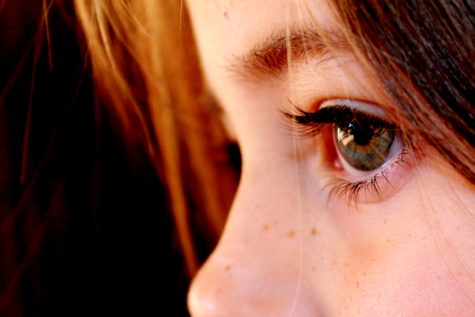COLUMBIA, Mo. — Spanking and other forms of physical punishment can haunt children for years after infancy and lead to negative behavior, a new study finds.
Researchers at the University of Missouri analyzed data pulled from 1,840 African-American or European-American mothers and children who participated in the Early Head Start Research and Evaluation Project.

Families participating in the federally-funded Early Head Start program must have income that falls below the federal poverty level, and children must be three years of age or younger.
For their study, researchers examined children at 15 months, 25 months, and when they were in fifth grade.
To determine the effects of spanking, researchers administered surveys to mothers and children, conducted home visits, and interviewed children’s fifth-grade teachers.
Overall, black youth were found to show a range of antisocial behaviors in fifth grade if they had been physically abused at 15 months. Those behaviors included increased aggressiveness, delinquency, and a lack of willingness to help fellow peers.
While white children did not demonstrate comparable effects from spanking on its own, they were likely to project negative outcomes if they had poor emotional regulation.
Both black and white youths stand to benefit from self-regulation, the researchers argue.
“Our findings show how parents treat their children at a young age, particularly African-American children significantly impacts their behavior,” says lead researcher Gustavo Carlo in a university news release. “It is very important that parents refrain from physical punishment as it can have long-lasting impacts. If we want to nurture positive behaviors, all parents should teach a child how to regulate their behaviors early.”
Carlo calls for parents, educators, and other resource providers to nurture well-being and resiliency in at-risk children.
Previous research had found similar negative effects of physical punishment, but adverse outcomes were not examined in the long-term.
The study’s findings were published in the journal Developmental Psychology.

I see the misguided drivel from Dr. Benjamin Spock keep rearing its ugly head again only decades later. As a child psychologist I can attest to the FACT that “reasonable” spankings as opposed to uncontrolled violent beatings are not harmful to children in general but actually assist the child in learning BOUNDARIES for their own good and the good of others.
Spankings done with the child’s welfare in mind are sometimes necessary to correct misbehavior. It sends an active message to the child that the parent is serious about the issue and it will not be tolerated. Spankings also communicate the message that the parent cares enough about the child to correct misbehavior provided that it is not too frequently. It is only one disciplinary measure (perhaps the final one) in a panoply of other measures that should be used to correct behavior.
There is NO credible evidence from so-called studies that spankings produce violent behaviors in children. What produces violent behaviors (borne of frustration) is the anger the children experience by the neglect of their parent(s) to take an active interest in them. Over exposure to unsupervised violent video-games and violent TV shows and movies. Children, despite their protests to the contrary when spanked, actually appreciate the attention paid to them when their behaviors cross over the pre-determined line. Solid and consistent parental discipline actually makes them feel more secure.
If this study was TRUE, let’s see some empirical stats with VALID Sources/ If this is TRUE, then we would have a world of uncontrollable brats. BUT on the other hand because “spanking” was a no no with spock, we now have a generation of spoiled BRATS who burn buildings and engage in rampages when they don’t get their own way. So in polite USMC Language, Stuff it. Remember the USMC is a Finishing School. We Finish what the parent were too afraid to do,
The headline says “spanking,” but the article refers to “physical abuse.” BIG difference.
This, like most “studies” of its type is probably reverse engineered to show what it wants to show. The study and the article were probably both written by millennial brats.
Depends on the definition of the word, “Spank”.
“Beatings”……no, of course, not. A whack on the butt to stop a brat in action, yes.